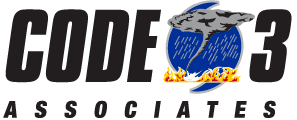Rabies and Quarantine Protocols: Prevention, Control and Best Practices February 19, 2025 Virtual Training
Course Description:
This course provides an understanding of rabies, with a focus on the virus, transmission, prevention, and quarantine procedures in the United States. Designed for professionals in animal control, veterinary care, and public health, it explores rabies risks, diagnostic methods, and the application of effective quarantine practices to prevent and control outbreaks.
Goals and Objectives
- Understand Rabies in the U.S.: Learn about rabies prevalence, affected animals, and human risks.
- Virus Propagation and Transmission: Examine how rabies spreads, its lifecycle, and transmission through various hosts.
- Vaccination Protocols: Review vaccination practices for humans and animals, including legal guidelines.
- Isolation and Quarantine Methods: Master proper quarantine practices for potentially infected animals, focusing on safety protocols.
- First Aid and Testing: Learn first aid responses to bites, testing methods, and confirmatory diagnostics for rabies.
Key Topics Covered
- Introduction to Rhabdoviruses: Understand the structure, classification, and characteristics of rabies and related viruses, including Lyssavirus and Vesiculovirus.
- Animal Susceptibility and Transmission:
- Susceptibility: Discuss which animals are most vulnerable to rabies (e.g., high-risk species such as dogs, raccoons, and bats).
- Transmission: Review modes of rabies transmission, including bites, saliva, and rare occurrences like organ transplants.
- Rabies Pathology and Incubation Periods:
- Explore how rabies attacks the nervous system and leads to fatal brain dysfunction in most cases.
- Discuss typical and extended incubation periods for rabies across various species.
- Diagnostic and Laboratory Methods:
- Diagnostic tools include PCR, serology, and post-mortem examination for Negri bodies.
- Understand rabies testing for animals, including guidelines for quarantine and exclusion of animals with bite histories.
- Quarantine Procedures for Rabies Risk Control:
- Implement safe quarantine protocols for high-risk animals to prevent spread, including cage maintenance, PPE use, and safety measures.
- Review the rationale for the 10-day quarantine period and conditions under which it is required.
- Vaccination Guidelines:
- Explore varying state laws and protocols for rabies vaccination in animals and humans.
- Learn about pre- and post-exposure prophylaxis, including vaccination schedules for at-risk humans.
- Human Rabies:
- Identify common sources of human rabies exposure in the U.S., primarily from bats.
- Review post-exposure treatment methods, focusing on wound care and prophylactic vaccination.
This course is essential for anyone involved in managing animal populations or public health, providing critical knowledge to mitigate rabies risk through understanding, prevention, and best practices in quarantine and vaccination.
For more information and to register, visit www.code3associates.org
Continuing Education Credit
Upon successful completion, students will receive a certificate of completion and become eligible to apply for continuing education credits from Colorado State University. Veterinary professionals may apply to receive Continuing Education Units (CEUs) from the CSU Veterinary Teaching Hospital.
This class is approved for Colorado Bureau of Animal Protection Agents for CE credit.
Tuition, Registration & Payment
Tuition for this class is $25.00.
Registration closes 1 hour before course begins.
Payment- Credit card payment is due at time of registration. An invoice will be sent for all check payments.
Training participants will be assessed a 25% fee on any cancellation made two weeks or less prior to class date, no refunds will be issued if the cancellation is made 0-5 days prior to the training. Exceptions may be made for extenuating circumstances and/or credits could be applied to future Code 3 training, please contact us regarding all cancellations.
This is a virtual class and refunds will not be provided for any internet or technology-related issues. If issues arise the student may be provided with the option to attend another scheduled training session to complete any instruction missed due to connectivity issues.
Please email us, info@code3associates.org, with any questions.
Details on Virtual Class
- Our virtual classes are taken via computer with the ability for students to interact with each other and the instructors.
- A computer with webcam, microphone and reliable internet access are required for attendance.
- 100% attendance is required with participation options available through the student’s microphone and/or through type-written communications.
- Class is from 9:00 am to 11:00 am MOUNTAIN STANDARD TIME.

Flyer

Date & Time

Location
n/a
Virtual Course,
Don't miss out on this class! Although online registration has ended, it may not be too late to join. We encourage you to email info@code3associates.org to inquire about registering. We look forward to helping you take the next step towards advancing your skills and training.

